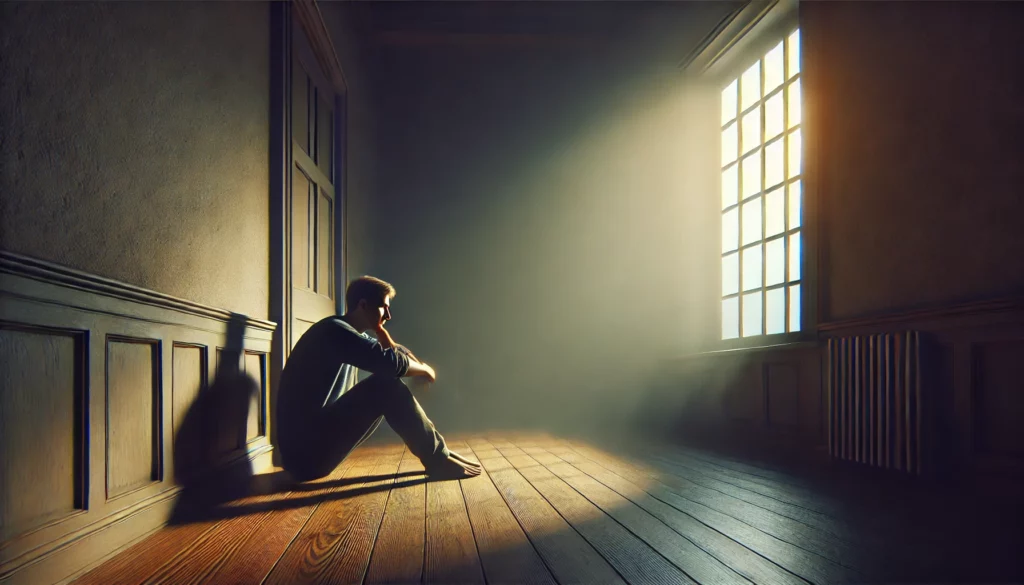
1️⃣ Introduction
The fear of death is a universal human concern, which can be particularly intense for individuals with bipolar and unipolar disorders. Emotional extremes, depression, and phases of existential uncertainty can lead to an increased preoccupation with mortality. This report explores how death anxiety manifests in these contexts and provides strategies for managing it in a healthy way.
2️⃣ Fear of Death in Bipolar Disorder
Bipolar disorder is characterized by significant mood swings between manic, hypomanic, and depressive phases. Death anxiety can manifest differently in each phase:
🔄 During the depressive phase:
- Increased fear of one’s own death or the loss of loved ones.
- Thoughts about the meaninglessness of life or what happens „after.“
- Heightened suicidality due to existential despair.
⚡ During the manic or hypomanic phase:
- Impulsive behavior may create a sense of invulnerability, reducing fear of death.
- Extreme euphoria can lead to religious or spiritual experiences that alter perceptions of mortality.
- Sudden existential insights can also trigger fear.
3️⃣ Fear of Death in Unipolar Disorder (Depression)
People with unipolar depression often experience intensified death anxiety in various ways:
😞 Death anxiety as part of depression:
- Negative thoughts about one’s own mortality and the „nothingness“ after death.
- Catastrophic thoughts about illness, accidents, or sudden death.
- Increased panic attacks or anxiety disorders related to dying.
🌀 Ambivalence between death anxiety and longing for relief:
- Some individuals face a paradox: fearing death while simultaneously longing for an „escape“ from suffering.
- This state can lead to increased suicidal thoughts, requiring special therapeutic attention.
4️⃣ Psychological Explanations for Death Anxiety
Death anxiety can have various psychological roots: ✅ Existential anxiety: The struggle with life’s meaning and one’s own impermanence. ✅ Fear of losing control: Death is inevitable and uncontrollable, which can be distressing for those with anxiety disorders. ✅ Traumatic experiences: Losing loved ones can intensify fear of one’s own mortality. ✅ Neurobiological factors: Imbalances in serotonin and dopamine can amplify thoughts about death.
5️⃣ Strategies for Coping with Death Anxiety
Various approaches can help manage fear of death:
🧘 Mindfulness & Acceptance:
- Meditation and mindfulness help focus on the present moment instead of worrying about the future.
- Acceptance-based strategies from cognitive behavioral therapy (CBT) can help view death as a natural part of life.
💬 Therapeutic Support:
- Talk therapy helps process existential fears.
- Cognitive behavioral therapy (CBT) can break negative thought patterns.
- Trauma therapy (if past experiences have exacerbated fear).
🌿 Pharmacological Support:
- Antidepressants and mood stabilizers can help regulate the experience of death anxiety.
- Sedatives should be used only short-term to avoid dependency.
📝 Finding Meaning & Shifting Perspectives:
- Engaging in philosophical or spiritual exploration.
- Focusing on the here and now rather than the „after.“
- Actively shaping a fulfilling life to reduce death-related fears.
6️⃣ Conclusion
Fear of death is particularly pronounced in individuals with bipolar or unipolar disorders. While depressive episodes may amplify this fear, manic phases can create a different perspective on life’s impermanence. Through a combination of psychological support, mindfulness, therapy, and self-reflection, a healthy way of dealing with this anxiety can be found. The goal is not to focus on the fear of death, but rather to embrace the joy of living.